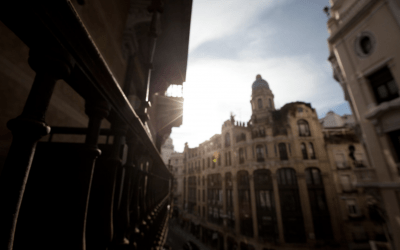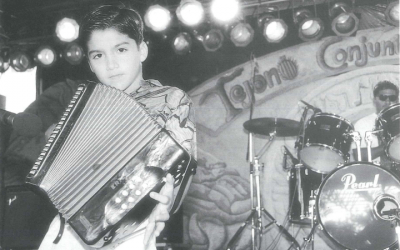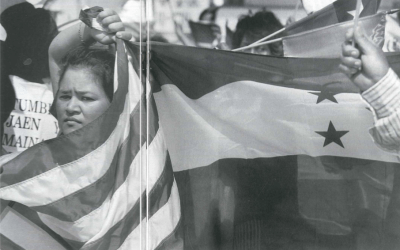Cuba Study Tour
Looking Back
Waiting at José Marti International Airport for the first Harvard students to arrive for January’s DRCLAS Cuba Study Tour, my companion, a theater critic at Casa de las Américas, commented to me, half-amused and half cynical, “Just why do these airport floors have to shine so most brightly?” Student of performance that she is, she had tapped into what would be some of the defining elements of the ten days the Harvard group spent in Havana last January: contrasts, contradictions and the uneasy tensions between outside and in. On the drive from the airport to the Malecon these contrasts rose up before us quite physically: billboards announcing “socialism or death” next to others for sports utility vehicles, and both, now, jostling for attention with the newer, brighter message. “¡Qué devuelvan a Elián a la patria!” Precisely because Elián González, rescued off the coast of Florida on November 25th, was not there in Cuba, he was everywhere. His pensive portrait was on new billboards, on the walls of work centers, on the T-shirts that tourists cajoled from the backs of organized demonstrators at a starting price of $10.00. His story was on the radio, and on the television: all-day interviews, talk-shows and continuous reruns of the most poignant moments in the drama. At first the group listened with attention, trying to discern the facts from the fanfare. Then, as we ate breakfast after breakfast to the tune of party officials, psychologists and six year-old orators pledging their allegiances to socialism, the story began to dim into the background.
This was background din, though, that made us very aware of the specificities of this moment, of the differences between the noise made in public and the murmurings at home; of the contrasts, that is, between politics and personal realities, which we observed at almost every juncture. We were part of the first DRCLAS “Havana in Literature” Cuba Study Tour, hosted by the cultural institution Casa de las Americas for ten days in late January, to coincide with the annual Casa awards for Latin American literature. We noted the contrast between the officialdom of our host institution, with its grand prize ceremony attended by numerous Cuban and foreign dignitaries, among them former Nicaraguan Vice-President and author Sergio Ramirez; and the intimacy and kindness offered by those same hosts, who spent time talking with us, accompanied us on excursions and invited us to the “fiesta de santo” of one of them who is a Babalao priest. We felt, too, the contradictions presented by current readings of earlier Cuban literature. The first part of our “Havana in Literature” course, taught by a Cuban professor, focused on Cirilio Villaverde’s novel “Cecilia Valdés”, written more than a hundred years ago. Walking through old Havana we saw how the elegant houses where the novel unfolds have become multi-family homes, and how the streets have borne the passage of socialism. We could not help noticing, too, how some questions of race and identity raised in “Cecilia Valdés” still await resolution; how issues conspicuously unspoken in the novel are not entirely in the open even today. Reading Havana through its literature was a moving experience, not least because it made us feel the depth of these contrasts.
Of the group of sixteen Harvard students and three faculty members on the tour, four had visited on previous occasions. Several, too, had personal connections to Cuba; and others are engaged in thesis research on the country. These differences could not but affect the expectations with which each of us approached the trip to Havana, and our experiences whilst there. All, though, were deeply interested to witness Revolutionary Cuba at this complicated moment in its history, and most came away with correspondingly unresolved views. As Caroline Perkins, a Junior concentrator in History and Literature of Latin America, puts it: “It was a phenomenal experience. It was emotionally draining and very confusing, but I’m so happy that I did it.” Rochelle Mackey, a Junior in Government, comments: “Above all, Cuba was intense, complicated, and thought provoking.” She adds, “the landscape was beautiful but dilapidated, the people warmly welcoming but usually harboring a ‘double consciousness”, referring to the contrast between public behavior and private speech. Back at Harvard the discussions continue, as we look back upon our time in Cuba and ahead to what the future might hold for the country; and as we realize–although we might have known before–how challenging it is to be to be left with as many questions as answers.”
Esther Whitfield, a graduate student in Romance languages and Literatures at Harvard, coordinated the Havana in Literature Cuba Study Tour. She spent a semester in Santiago de Cuba as an undergraduate in 1992 and has since returned to Cuba several times since. She is writing her dissertation on language and economics in contemporary Cuban narrative published in Cuba, Spain, and the United States.
Related Articles
Forum on U.S. Hispanics in Madrid
The Trans-Atlantic Project, an academic initiative to study the cultural interactions between Europe, the U.S. and Latin America has been invited by Casa de América, Madrid, to present a …
The Soulfulness of Black and Brown Folk
And so, by faithful chance, the negro folksong – the rhythmic cry of the slave – stands to-day not simply as the sole American music, but as the most beautiful expression of human experience …
The ‘Return’ of the State
The oath which immigrants are required to swear today on becoming naturalized citizens of the United States, reads, in rather archaic and high-sounding formal language: “I absolutely and …




